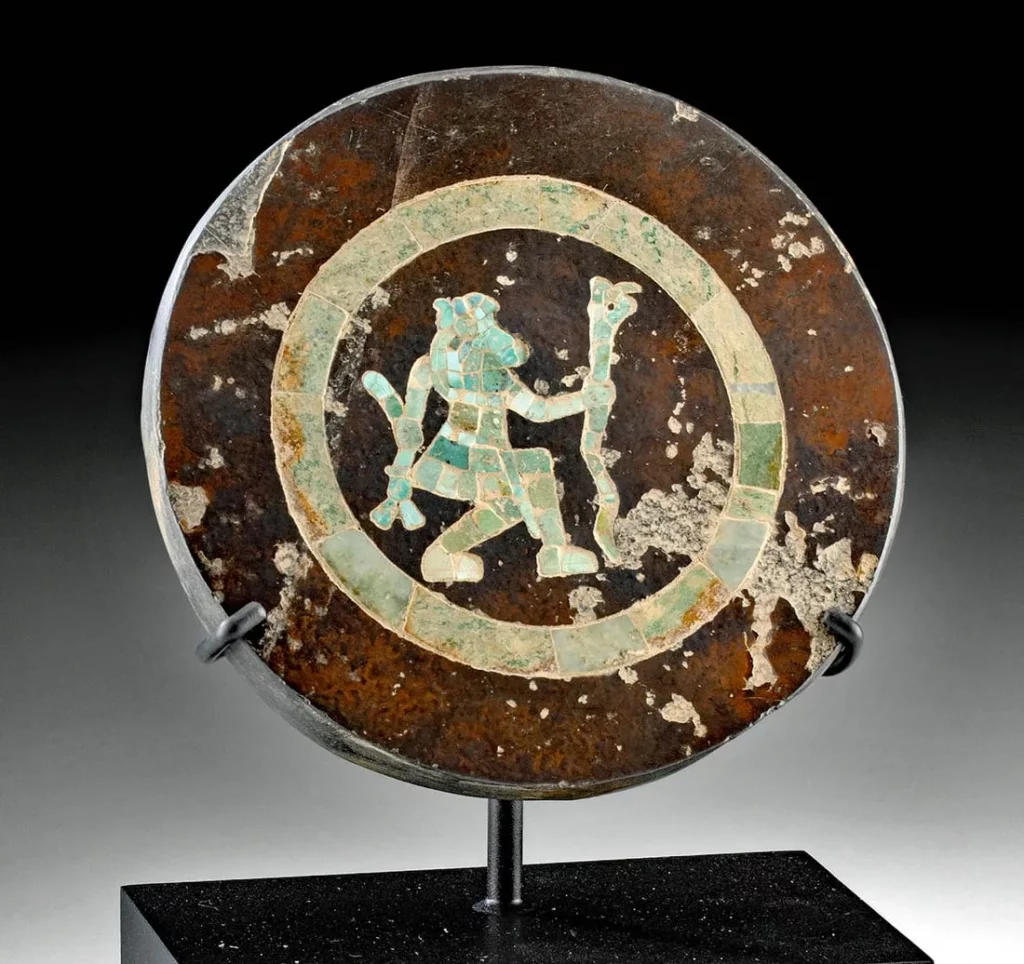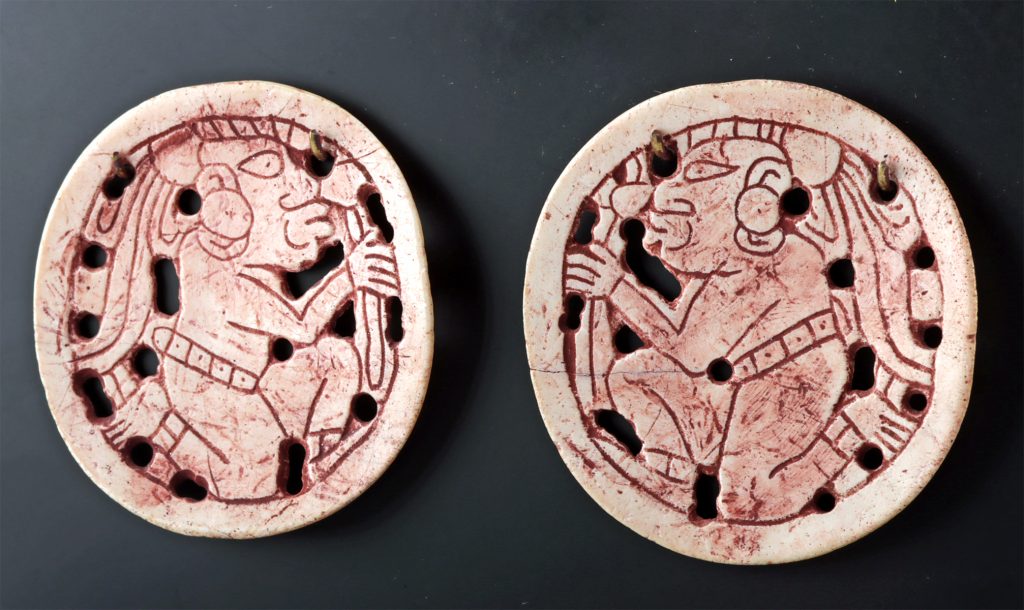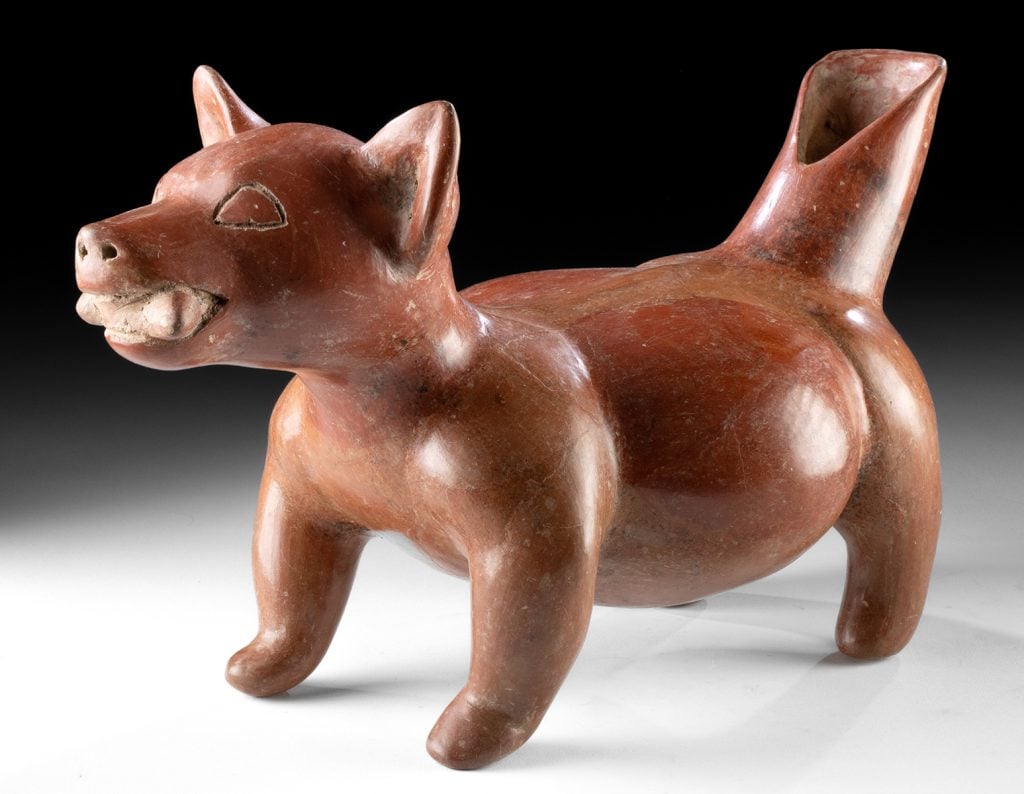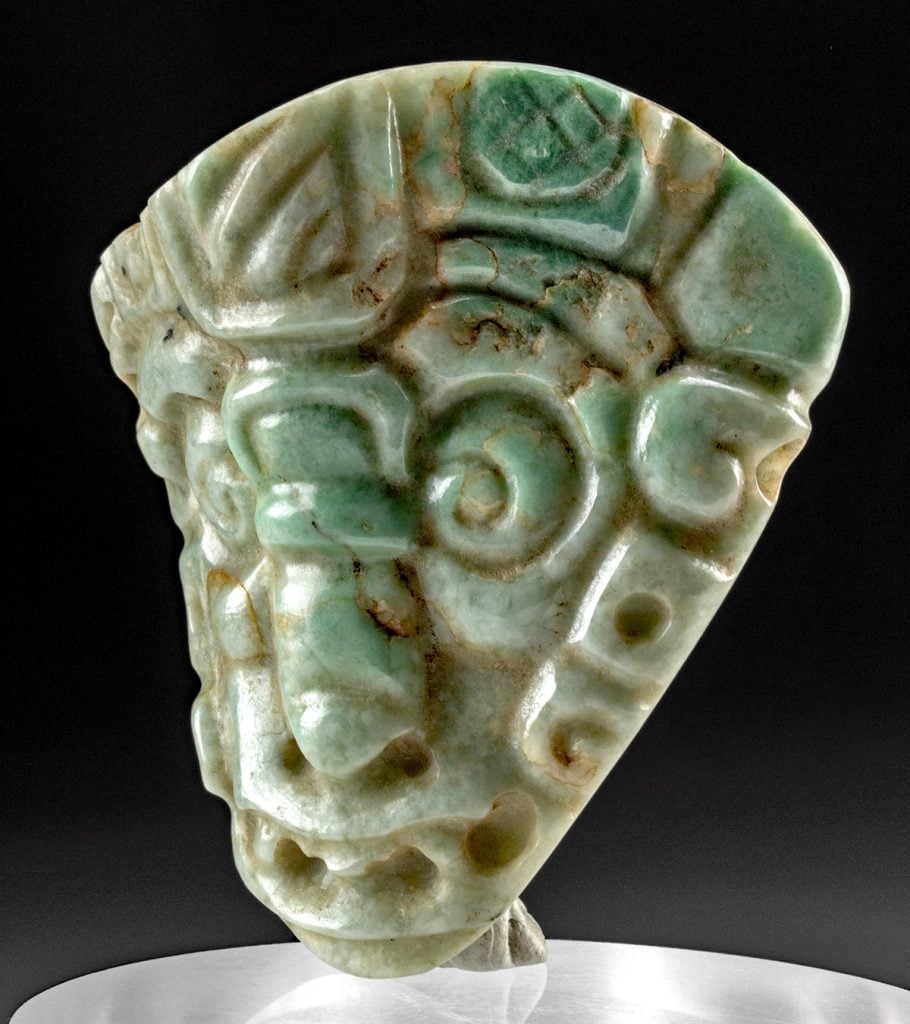Art World
A Colorado Auction House Rebuffs Mexico’s Pleas to Halt a Sale of Mayan Artifacts
“There is nothing more immoral than put a price on the heritage of a nation,” said the country's culture minister.

“There is nothing more immoral than put a price on the heritage of a nation,” said the country's culture minister.

Adam Schrader

A Colorado auction house has sold some historic artifacts from Mexico at a recent auction, despite pleas from the country’s government to cancel the sale.
Mexico’s culture minister Alejandra Frausto Guerrero posted on social media demanding that the Artemis Gallery in Louisville, located about 22 miles northwest of Denver, stop the sale of pieces “that belong to the cultures of Mexico.” He added: “There is nothing more immoral than put a price on the heritage of a nation.”
The auction also caught the attention of Mexico’s first lady, Beatriz Gutiérrez Müller, who wrote in Spanish in a post on social media that the pieces were “illegally stolen from our territory.”
Bob Dodge, the co-owner of the auction house, said ultimately an estimated 16 of the 25 items Mexico had wanted, or about 65 percent, were sold in the March 28 auction. Some of the listings for “passed lots” remain available for purchase through April 18. Dodge said he declined to give all the items to the Mexican government.
Items that are still available for sale include a rare pair of matched Mayan ear flares that each depict a kneeling figure, listed for a buy-now price of $5,737.50. The provenance was listed as having come from a private collection in Hawaii, previously owned by the Alan Kaplan collection in Florida in the 1960s.
“All items legal to buy/sell under U.S. Statute covering cultural patrimony Code 2600, CHAPTER 14, and are guaranteed to be as described or your money back,” the listing reads.

Rare Mayan shell ear flares featuring a kneeling figure. Photo courtesy of Artemis Gallery.
Another listing for a Teotihuacan slate mirror is seeking a $15,000 sale price. “Wow! A marvelous slate mirror back or tezcacuitlapili of discoid form adorned with the inlaid image of a lord in omphacite jade and greenstone,” the listing reads, adding the object was acquired by an American collector before 1960.
Other items for sale include a stucco portrait of a royal Mayan woman from around 550 to 900 C.E., a Mayan Jadeite pendant with the head of the god Kionich Ahau, and a Colima redware effigy of a dog holding corn in its mouth. A large polychrome pottery jar dated back to 1200 to 1450 C.E. was described as a “titanic example” of such ceramics.
Dodge’s wife, Teresa, who co-owns the Artemis, said that the auction house has long received requests from foreign consulates and “not just Mexico,” which she said has amounted to “harassment.” She also expressed disdain at news reports surrounding repatriation efforts that don’t offer clarity on what is legal and illegal to sell.
Dealers are obligated to operate under a variety of U.S. laws and international conventions surrounding the sale of historic artifacts to combat looting. Teresa cited the 1970 UNESCO Convention as one such agreement at the international level that allows for the legal sale of artifacts with clear provenance. That convention has been codified as U.S. law, the one cited in the listing.
“Just because any country says ‘you can’t sell this’ does not mean what we and other dealers sell is illegal. It’s not,” Teresa said. “Reporting should be based on facts, not accusations by a government that doesn’t want to acknowledge U.S. laws that apply for businesses doing business in the U.S.”

An effigy from Colima of a dog holding corn in its mouth. Photo courtesy of Artemis Gallery.
When presented with the idea that critics may be concerned with the ethics of such sales beyond their legality, Bob Dodge said that humans have been collecting art for more than 10,000 years. Civilizations such as the Ancient Greeks coveted Egyptian art, he said, while the Romans collected Greek art. “Mexico wants everything back,” he added. “To what end? Because it’s theirs? When it was made, there was no Mexico.”
He questioned whether all such historic art needs to belong in a museum, while alleging that Mexico displays in its museums less than one percent of what it owns. He said if the country was successful in its efforts to have every piece currently in the United States repatriated, it would be “somewhere between 100,000 and 500,000 pieces.”

A Mayan Jadeite pendant with the head of the god Kionich Ahau. Photo courtesy of Artemis Gallery.
“Mexico claims they have the ability to manage it all. But if they cannot display what they currently possess, how can they display this material?” he said. “If we sent back all 25 pieces Mexico is claiming is theirs, it will rot in a warehouse for eternity. Tell me what is more ethical: art being enjoyed by humans or art buried in a warehouse possibly never to be seen again?”
Mexico doesn’t want all 25 artifacts back, according to the Denver Post. It wants 20 of them, deeming five of them fakes.
“That’s a colonial argument that we don’t like,” Miguel Barradas, Mexico’s consul for protection and legal affairs, told the Denver Post in response to similar comments from Bob Dodge. “We have one of the biggest anthropological museums in the world. We have the capacity, the know-how, to manage all of this.”
The Dodges have sold pieces that were later determined to have been looted, the paper noted. In May, Manhattan D.A. Alvin Bragg took possession of an ancient Egyptian artifact that had been illegally removed from the country. The auction house was later forced to give up two more stolen Egyptian pieces.
“Every auction house, Christies’ Sotheby’s, Bonhams, etc and literally every museum has been required to repatriate objects that have turned out to have inaccurate provenance,” Bob Dodge said by email.
“That does not constitute a ‘history’ of dealing in smuggled goods. If dealers or museums were given access to the various databases that show stolen goods, I think every one of us would use that to avoid these situations. Even so, far less than 1 tenth of one percent of what we have handled has proven to be problematic.”